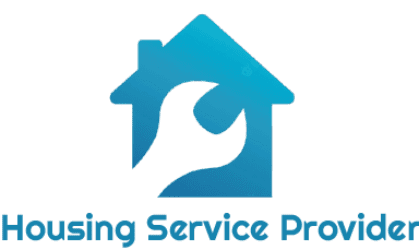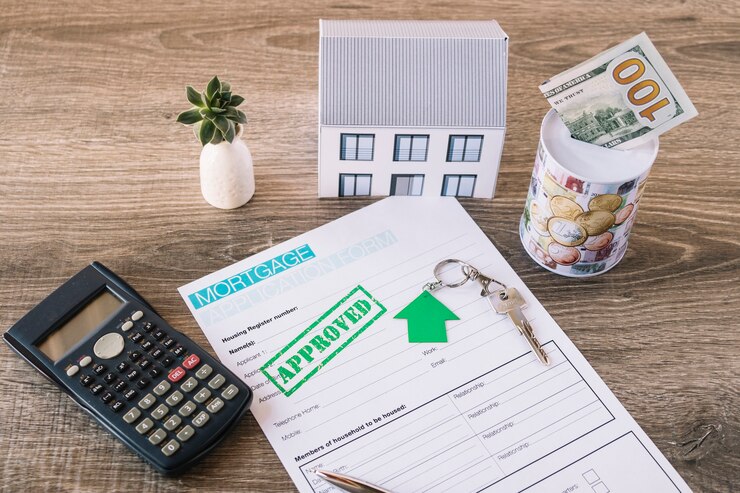Home loans for pastors are specialized mortgage programs designed specifically for clergy members to help them purchase or refinance a home. This type of loan takes into account the unique financial circumstances of pastors and offers favorable terms and rates tailored to their needs.
Home loans for pastors provide a range of benefits including flexible down payment options, reduced fees, and favorable interest rates. These mortgage programs recognize the important role pastors play in their communities and aim to support them in achieving homeownership.
Whether you are a pastor interested in buying your first home or refinancing an existing mortgage, home loans for pastors can help you fulfill your housing needs while accommodating your financial situation.
Understanding The Unique Home Loan Needs Of Pastors
Applying for a home loan can be a complex process for anyone. But for pastors, there are additional challenges that can make the process even more daunting. Understanding the unique home loan needs of pastors is crucial for both pastors themselves and the financial institutions that serve them. In this blog post, we will explore the challenges faced by pastors when applying for home loans, the importance of specialized loan programs designed specifically for pastors, and how the role of a pastor can impact the loan application process.
Challenges Faced By Pastors When Applying For Home Loans
When pastors seek to apply for home loans, they often encounter unique challenges that can make securing financing more difficult. These challenges arise due to several factors:
- Irregular income: Pastors usually have a different income structure compared to traditional employment. They may receive a portion of their income as a housing allowance or have varying levels of compensation, which can make it challenging for lenders to assess their financial capacity.
- Student loan debt: Many pastors have student loan debt from their education at theological institutions. This debt can affect their debt-to-income ratio, which lenders use to evaluate their ability to repay the loan.
- Limited credit history: Pastors who have devoted their lives to ministry may have limited credit history since they may not have had the opportunity to build credit through traditional means.
These challenges can make it more difficult for pastors to meet the traditional requirements set by lenders, often resulting in rejection or limited loan options.
The Importance Of Specialized Loan Programs For Pastors
Recognizing the unique challenges faced by pastors, several financial institutions have developed specialized loan programs tailored to meet their needs. These programs offer benefits that can make the home loan application process easier and more manageable for pastors:
- Flexible income assessment: Specialized loan programs take into account the irregular income structure of pastors, allowing for more flexibility in assessing their financial capacity. Lenders consider housing allowances and other factors to provide a more accurate picture of a pastor’s ability to repay the loan.
- Debt-to-income ratio considerations: Some loan programs make allowances for the student loan debt that many pastors have. This helps to ensure that the debt-to-income ratio is evaluated in a way that accurately reflects the financial situation of the pastor.
- Credit history flexibility: Specialized loan programs understand that pastors may have limited credit history. They take alternative factors into account, such as rental history or payment history for bills or utilities, to establish creditworthiness.
These specialized loan programs provide pastors with more opportunities to secure financing for their dream home, overcoming the challenges they may face with traditional loan programs.
How The Role Of A Pastor Can Impact The Loan Application Process
The role of a pastor can have an impact on the loan application process, both in positive and negative ways:
- Nonprofit status benefits: Many pastors work for nonprofit religious organizations, which can present advantages when applying for loans. Some loan programs offer favorable terms, such as lower down payment requirements or reduced closing costs, for pastors due to their connection to nonprofit entities.
- Perceived instability: Lenders may view the role of a pastor as less stable compared to traditional employment, as pastors may change positions or be subject to the financial health of their respective religious institution. This perceived instability can affect the loan application process and the terms offered by lenders.
Understanding the impact of the pastoral role on the loan application process is crucial for both pastors and lenders. Open communication and transparency can help pastors navigate these factors effectively.

Credit: www.bcbank.net
Eligibility Criteria And Qualifications For Pastors Seeking Home Loans
Eligibility Criteria and Qualifications for Pastors Seeking Home Loans
As a pastor, the journey to homeownership may come with its own unique challenges. Financial institutions often have specific eligibility criteria and qualifications for pastors seeking home loans. It’s important to understand these requirements in order to navigate the process smoothly and increase your chances of approval.
Income Requirements And Documentation Needed For Pastors
Income requirements:
Pastors typically have a stable income from their church or other ministry. However, each financial institution may have specific guidelines regarding minimum income thresholds for home loan eligibility. It’s crucial to research and be aware of these requirements before applying for a loan.
Documentation needed:
When applying for a home loan, financial institutions require certain documents to verify your income and credibility:
- Proof of income: This can include recent pay stubs, tax returns, and bank statements to demonstrate your regular income.
- Employment verification letter: A letter from your church or ministry confirming your position, tenure, and income details can further strengthen your application.
- Account statements: Providing financial statements from your church or ministry’s accounts may help validate your income eligibility.
Credit Score Considerations For Pastors
The credit score is an important factor that financial institutions assess when evaluating loan applications. As a pastor, having a good credit score can increase your chances of securing a favorable home loan.
Reasons for maintaining a good credit score:
- Timely debt payments: Paying your bills on time, including credit card bills, student loans, and other debts, helps maintain a good credit score.
- Low credit utilization: Keeping your credit card balances low and manageable can positively impact your credit score.
- Limited new credit applications: Applying for multiple credit cards or loans within a short period can negatively impact your credit score. Prioritize only essential credit applications.
It’s crucial to review your credit score and ensure it meets the financial institution’s requirements before applying for a home loan. Regularly monitoring your credit score and taking steps to improve or maintain it can pave the way for a smoother loan approval process.
Potential Hurdles And How To Overcome Them
While pastors may face certain challenges when applying for home loans, there are ways to overcome these obstacles and increase the chances of loan approval:
1. Limited financial history: Financial institutions may require a substantial financial history to assess creditworthiness. To overcome this, you can provide additional documents such as utility bills, rental payment records, or proof of consistent savings to showcase your financial responsibility.
2. Non-traditional sources of income: Pastors often receive income from various sources outside of a traditional employment contract. Gathering comprehensive documentation of your income sources and presenting them to the financial institution can help demonstrate your financial stability.
3. Debt-to-income ratio considerations: Lenders analyze the ratio of your monthly debt payments to your income (debt-to-income ratio). Ensure your debt obligations, including any existing loans or credit card balances, are manageable and don’t significantly affect your ability to repay a mortgage.
4. Seek assistance from mortgage professionals: Enlisting the support of mortgage professionals experienced in working with clergy can be highly beneficial. They understand the unique financial situation of pastors and can guide you through the loan application process.
Navigating through the eligibility criteria and qualifications for pastors seeking home loans can be a complex endeavor. By understanding the income requirements, credit score considerations, and potential hurdles, you can position yourself for a successful loan application process. Remember to gather all necessary documentation, maintain a good credit score, and seek assistance when needed. With proper preparation, homeownership can become a reality for pastors seeking to establish a stable and secure foundation for their families.
Specialized Loan Programs For Pastors
html
Introduction to loan programs catered specifically to pastors
Introduction To Loan Programs Catered Specifically To Pastors
As pastors serve their communities with unwavering dedication, they may find it challenging to navigate the complexities of mortgage loans. Fortunately, there are specialized loan programs designed specifically for pastors, aimed at providing them with affordable options and unique benefits to support their homeownership dreams.
Benefits and advantages of these specialized loan programs
Benefits And Advantages Of These Specialized Loan Programs
These specialized loan programs offer numerous benefits and advantages to pastors, ensuring they can access favorable terms for purchasing or refinancing their homes.
- Lower Interest Rates: Pastors often qualify for competitive interest rates, enabling them to save money over the life of their loan.
- Flexible Down Payment Options: Some specialized loan programs offer reduced down payment requirements, making homeownership more accessible for pastors.
- No Private Mortgage Insurance (PMI): With certain loan programs, pastors may be exempt from paying PMI, resulting in additional savings.
- Gift Funds: Pastors may be eligible to receive gift funds from their congregations or other qualified sources, which can be used for down payments or closing costs.
- Deferred Payment Options: In certain situations, pastors may have the option to defer their mortgage payments for a specific period, providing some financial relief when needed.
- Supportive Lenders: Many specialized loan programs have dedicated lenders who understand the unique circumstances and financial challenges pastors may face, offering personalized guidance throughout the loan process.
Comparison of different loan programs available to pastors
Comparison Of Different Loan Programs Available To Pastors
When exploring loan programs tailored for pastors, it’s essential to compare the available options to make an informed decision that aligns with their individual needs.
| Loan Program | Key Features |
|---|---|
| Pastoral Home Loan Program | Offers low interest rates, waived PMI, down payment assistance, and supportive guidance. |
| MinistryLiving Loan | Provides affordable financing with low down payment options and deferment possibilities. |
| Church Partner Loan | Designed for pastors serving churches, featuring favorable rates, flexible terms, and various down payment options. |
By carefully considering the features of each loan program, pastors can select the one that best suits their specific requirements and financial goals.
Steps To Successfully Apply For A Home Loan As A Pastor
Applying for a home loan can be both exciting and overwhelming, especially if you are a pastor. The good news is that there are lenders who offer home loans specifically crafted for pastors. To navigate this process effectively, it is essential to take a systematic approach and make sure you are well-prepared. This article will guide you through the steps of successfully applying for a home loan as a pastor.
Preparing The Necessary Documents And Paperwork
Before starting the loan application process, gathering and organizing all the necessary documents and paperwork is crucial. Lenders typically require specific documentation to verify your income, assets, and overall financial stability. Here are some documents you should prepare:
- Proof of income: This includes copies of your W-2 forms, tax returns for the past two years, and recent pay stubs.
- Bank statements: Provide several months’ worth of bank statements to demonstrate your financial stability.
- Proof of employment: Most lenders require a letter from your church confirming your position and salary.
- Personal identification: Prepare a copy of your driver’s license or passport.
- Additional documentation: Depending on the lender, you may need to provide additional documents such as proof of retirement benefits or investment income.
Finding The Right Lender Who Offers Home Loans For Pastors
One of the most critical steps in obtaining a home loan as a pastor is finding the right lender who understands the unique financial circumstances pastors often face. Not all lenders cater to the specific needs of pastors, so it is vital to do thorough research and find those that do. Here are a few tips to help you find the right lender:
- Do your homework: Research lenders and explore their offerings for pastors. Look for those that specialize in home loans for religious professionals.
- Ask for recommendations: Reach out to other pastors or colleagues who have successfully obtained home loans and ask for their recommendations.
- Meet with potential lenders: Schedule appointments with different lenders to discuss your specific needs and find out if they are the right fit for you.
- Consider your loan options: Compare the terms, interest rates, and repayment options offered by different lenders to ensure you find the most suitable loan for your situation.
Tips For Navigating The Loan Application Process Effectively
Now that you have gathered the necessary documents and found the right lender who offers home loans for pastors, it’s time to navigate the loan application process with ease.
- Stay organized: Keep all your documents in one place and maintain a checklist to ensure you have completed each step.
- Communicate effectively: Maintain open and clear communication with your lender throughout the process. Ask questions if you are unsure about any aspect of the application.
- Be honest and transparent: Provide accurate and up-to-date information to your lender. Honesty is essential to build trust and ensure a smooth application process.
- Follow instructions carefully: Read all instructions provided by your lender thoroughly and follow them precisely to avoid delays or complications.
- Review your application: Before submitting your application, review it carefully to make sure all information is accurate and complete.
- Stay patient: The loan application process can be time-consuming, so it’s important to be patient and stay in touch with your lender regularly for updates.
Common Questions And Concerns About Home Loans For Pastors
When it comes to buying a home, pastors often have unique concerns and questions. Understanding the financial challenges they face and exploring appropriate loan options can help pastors turn their dream of homeownership into a reality. In this article, we address some of the most common questions and concerns pastors may have when considering home loans.
Addressing Concerns About Income Stability For Pastors
One primary concern pastors may have when applying for a home loan is income stability. Traditional income verification methods used by lenders may not accurately reflect the financial situation of pastors, as their compensation structure can vary significantly. However, there are ways to address this concern and increase the chances of loan approval.
Here are a few strategies to address income stability concerns:
- Documenting consistent income: Providing documentation of a consistent income stream over time, such as tax returns or pay stubs, can help lenders assess income stability more accurately.
- Letter of reference from church leadership: A letter from the church’s governing body or leadership affirming the pastor’s ongoing employment and income can provide additional support.
- Long-term ministry commitment: Demonstrating a long-term commitment to pastoral ministry may alleviate concerns about income stability.
Exploring Options For Pastors With Student Loans Or Other Debts
Pastors, like many individuals, may carry student loan debt or have other financial obligations that can impact their ability to qualify for a home loan. However, several options and strategies can help pastors manage their debt while still achieving their homeownership goals.
Consider the following options for pastors with student loans or other debts:
- Debt consolidation: Consolidating multiple debts can simplify repayment and potentially lower monthly payments.
- Income-driven repayment plans for student loans: Exploring income-driven repayment plans can help manage student loan payments based on the pastor’s income level.
- Church assistance programs: Some churches may offer financial assistance programs or loan repayment programs to support pastors with their financial obligations.
Frequently Asked Questions Regarding Home Loans For Pastors
As pastors navigate the process of obtaining a home loan, they may have specific questions about eligibility requirements, loan terms, and other aspects of the loan application process. Here are answers to some frequently asked questions pastors may have:
- Can pastors with a lower credit score still qualify for a home loan? Yes, pastors with lower credit scores may still qualify for a home loan through specialized programs designed for religious professionals.
- What down payment options are available for pastors? Depending on the loan program, pastors may have access to low or no down payment options, making homeownership more feasible.
- Are there specific loan programs for pastors? Yes, there are loan programs specifically tailored to meet the unique needs of pastors, taking into account their compensation structure.
By addressing common concerns about income stability, exploring debt management options, and understanding the specific loan programs available, pastors can confidently navigate the process of securing a home loan and realize their dream of owning a home.
Frequently Asked Questions For Home Loans For Pastors
How Can A Pastor Buy A House?
A pastor can buy a house by saving money, applying for a mortgage loan, finding a suitable property, and completing the necessary paperwork. It is important to have a steady income and a good credit score to increase the chances of approval for a mortgage loan.
Does Fha Allow Pastor Income?
Yes, FHA does allow pastor income. FHA considers income from pastors as a valid source for loan qualification.
Can A Pastor Get A Loan From The Church?
Yes, a pastor can get a loan from the church if the church has policies in place for providing loans to its members, including pastors. It is important to check with the church administration regarding their specific loan guidelines and requirements.
Should Ministers Pay Off Their Mortgage?
Ministers have the choice to pay off their mortgage. There is no obligation, but it can provide financial security and peace of mind. It depends on their individual circumstances and priorities.
Conclusion
Home loans for pastors provide a unique opportunity for clergy members to achieve their homeownership dreams. With various options tailored to their specific financial needs, pastors can secure affordable and flexible mortgage terms. By partnering with specialized lenders who understand their vocation, pastors can overcome obstacles and enjoy the stability and peace of mind that come with owning a home.
Taking advantage of these specialized loan programs can truly be a blessing for pastors.




